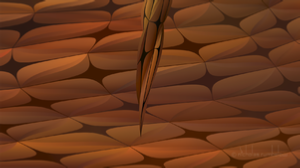















Despair
About the Subject
Despair robs us of the energy to repair and rebuild, it stops us from developing strategies to help us navigate our way through challenging situations.
When we despair, reaching out for help is not an option. Friends mean well, but toxic empathy, being told that everything will be ok, just makes us feel worse, so we avoid the very people who might be able to help because we cannot react well to their good intentions. The isolation alienates and marginalises us even more, and communication feels impossible.
Maybe the restrictive changes that we are unable to avoid are suddenly forced upon us and the destruction is unexpected and violent. It could be a sudden act of betrayal, maybe we are just in the wrong place at the wrong time, or perhaps the trauma that eventually overwhelms us can develop over time, as repeated and prolonged exposure to highly stressful situations and events, which cause us to slowly abandon hope.
However it happens, we are powerless and unprepared, and lacking the strength and skills to prevent it. We feel our situation will never get better, we cannot imagine how we ever felt any other way, and we become aware of our lack of agency, our inability to effect positive change in our lives.
We panic, we don't want to believe that it can be true. It's like everything that was good and trusted is ripped out and destroyed, we are left barren and bare, and the emptiness becomes filled with the fear of the unknown. The future looks bleak, desolate and unpredictable, how can things ever be good again?
We may have seen the signs and ignored them, but even if we could plan ahead, news that the situation was coming could not prepare us for the devastation and isolation, because the sudden shock is something we've never experienced before.
After the impact, the loss and hopelessness leave us frozen and disillusioned, and when emotions are no longer the call to move us into action that they are supposed to be, then the twisted shapes that have morphed our familiar lives into something strange and unrecognisable leave us in despair, and we would rather die than try to cope with the changes.
Suicide is a permanent solution to a temporary situation.
Persistent, looping flashbacks might compel us to re-
Loneliness plays tricks on the mind, and can leave life-
Depression is a seductive liar. Things make sense to us, unaware how very narrow our focus has become, blinkering us from finding what we need in order to heal. When we become so used to despairing, there develops a reluctance to feel better. Even when solutions are presented to us, it can still take time to start to let go of the fear, and to overcome the inertia in our minds and in our hearts.
'If only' are two of the saddest words.
Seeking help while feeling despair is difficult. The willingness to consider help could indicate that the despair is already weakening its grip, but reaching-
I don't find the so-
Some level of grief might always be with us for the rest of our lives, some of us might require professional counselling to help us develop some coping strategies and resources, but hopefully new joys and celebrations slowly begin to fill the emptiness, and our focus starts to move away from the events enough for us to appreciate any positive changes that may have emerged as a direct result of traumatic events, which eventually shift into the long-
Only time gives us the retrospective appreciation of how so many of the good things we cherish in our present better days can be traced back directly to terrible times, and although they were horrible to experience and we never want to live them again, they can however, somehow be cherished in their own way one day too.
Because to go back and change things would mean that you never have the relationships that came from those times. You would never meet, you would never go there, you would not make those discoveries, those choices would not be available and you would not know life in the same way. You would not be who you are.
What if we don't have the full picture, what if we are jumping to conclusions? Try not to react. If something is a good idea today, it will still be a good idea tomorrow, just pause and deliver a considered response.
Things might not happen for a reason, but it's good to ascribe meaning to past events and validate them. I used to see 'signs' and feel the universe is trying to tell me something, maybe it was, but I've learned that sometimes a coincidence is just a coincidence, and allowing important life-
The biggest threat is fear. Fear controls how much pain and trauma we feel. Changing our focus to the needs of others can be an enabling route out of depression. By hearing ourselves give counsel to others, we can be distracted by our own words, and have to apply them to ourselves. For me it's writing this text, I have to follow my own advice.
Control the fear by quieting the alarm. Haven't you been through terrible times before? And although it may take so much longer than you hope for, experience becomes wisdom when we learn from the past and try to put the pieces back together, rebuilding better and stronger than before.
Grief can bring people together, but some of us feel unable, or don't have the option of turning to friends for help, somehow we have to become our own best friend.
In my experience, when counselling works it might be because you have heard yourself tell the counsellor the solutions you yourself need. The counsellor doesn't fix things for you, they bring you to your own recovery, which when successful can be lasting and life-
You don't have to know what you are going to say, once you start you might be surprised at how much is brought to the surface. You may find that you've not identified the real problems, until you hear yourself talking about them. Nobody else needs to see your recordings, you might not even review them yourself, but it can be very powerful and effective, a readily-
These days, whenever I feel depression creeping in, when I become intolerant and impatient, my first thought is to question my diet over the last few days. As someone who makes plant-
If you are dealing with despair, it's likely that your nutrition is taking a hit, and that really is making things worse. Staying hydrated, eating healthily and taking supplements if you need them, may feel like an effort at first, and won't solve your problems, but you deserve to face them with the best armour you can build.
The storm is not just the great destroyer, it is also forces new growth. Destruction helps us appreciate what we once took for granted, and value what remains. When terrible things happen again, we will have a better understanding of how to deal with them. We will know what works and what doesn't, and if you can reach out, together we can become so much stronger, but no one can help us if no one knows.
We cannot change the past. Success is nearly always after many failures, but if we focus on what we can change and acknowledge what is beyond our control, if we persevere and make way for the new hope, and work together with the people and things we care about, it's possible to strengthen our foundations, and to be open to new possibilities that were previously unimaginable.
Growth is not a straight line, it is the many, many twists and turns that influence the forces that change us.
About the Subject













